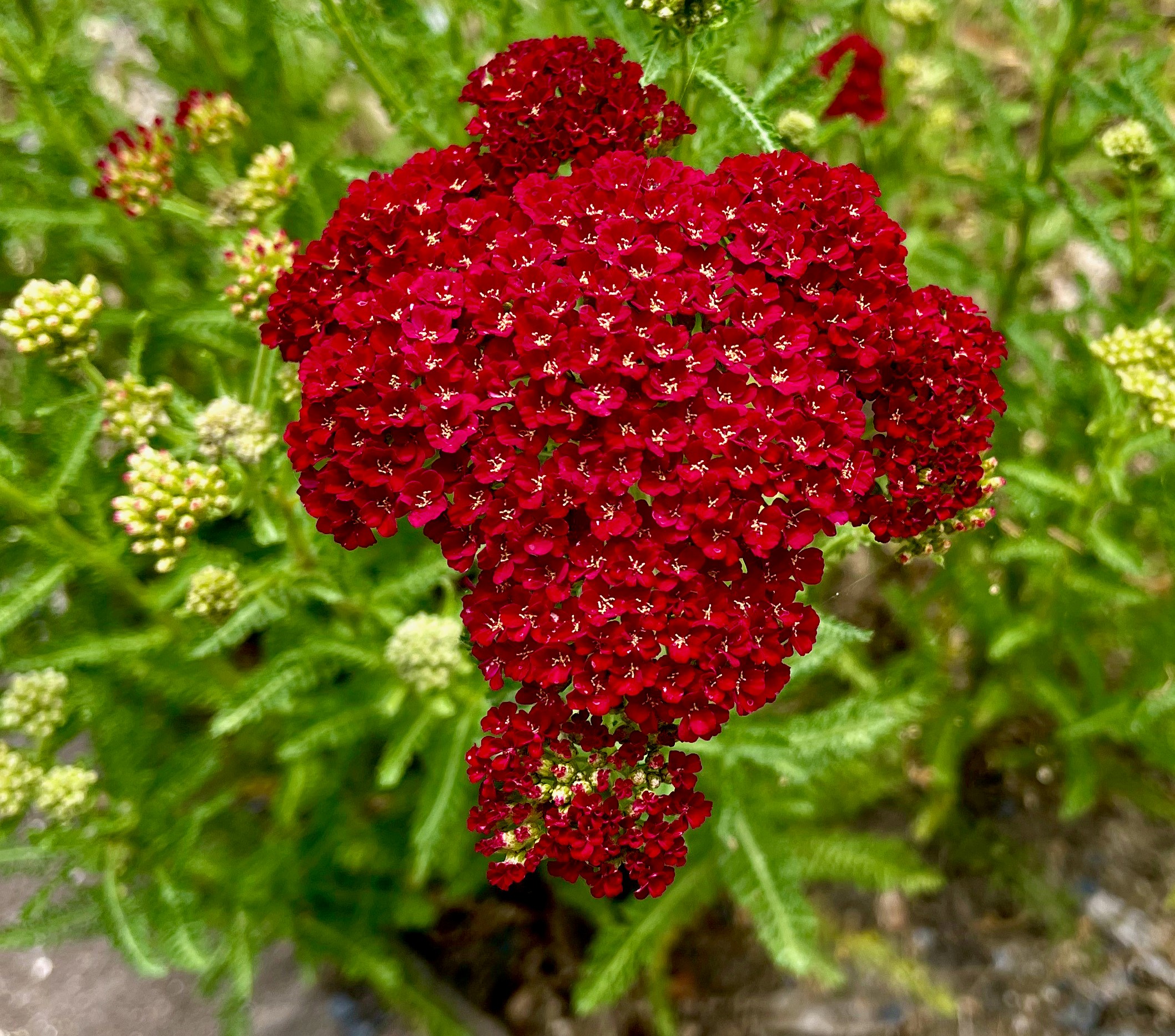by David P. Davis
Newsroom@DominionPost.com
As late-spring heat hits the garden, many plants are rapidly coming into bloom. And, as we have covered in prior reports, many plant combinations can be found in the Yagle Garden.
Blooming now in the Yagle Garden is a great combination of allium, poppies, and coreopsis. The large purple ‘Globemaster’ allium is holding onto its color nicely. The allium is now framed by a sea of red bread seed poppies. In the forefront of the bed is a raft of golden-yellow lance-leaved coreopsis. Visitors who come upon this combination in the Yagle Garden all stop to take in the beauty of these blooms and take a few photos.
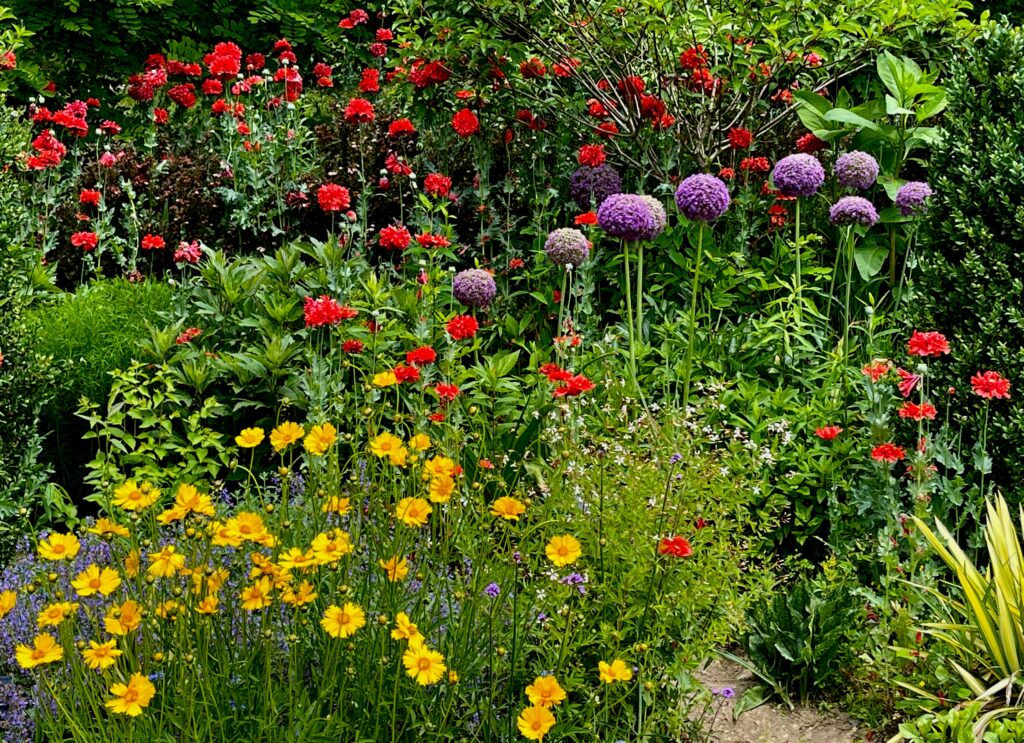
A cornerstone of late-spring flowering at the West Virginia Botanic Garden can be found in a lower bed of the Yagle Garden. Now blooming is the trumpet honeysuckle (Lonicera sempervirens). Our trumpet honeysuckle vine has overgrown its metal stand over the years and we have propagated several additional vines that now climb up timbers in a number of other locations. The trumpet honeysuckle blooms form a spray of orange-scarlet florets that are contrasted against deep-green foliage. The late Dr. Charles Bear, professor of botany at WVU, donated the honeysuckle vine that is now at the WVBG. Trumpet honeysuckle is also a native vine that is attractive to hummingbirds and pollinators.
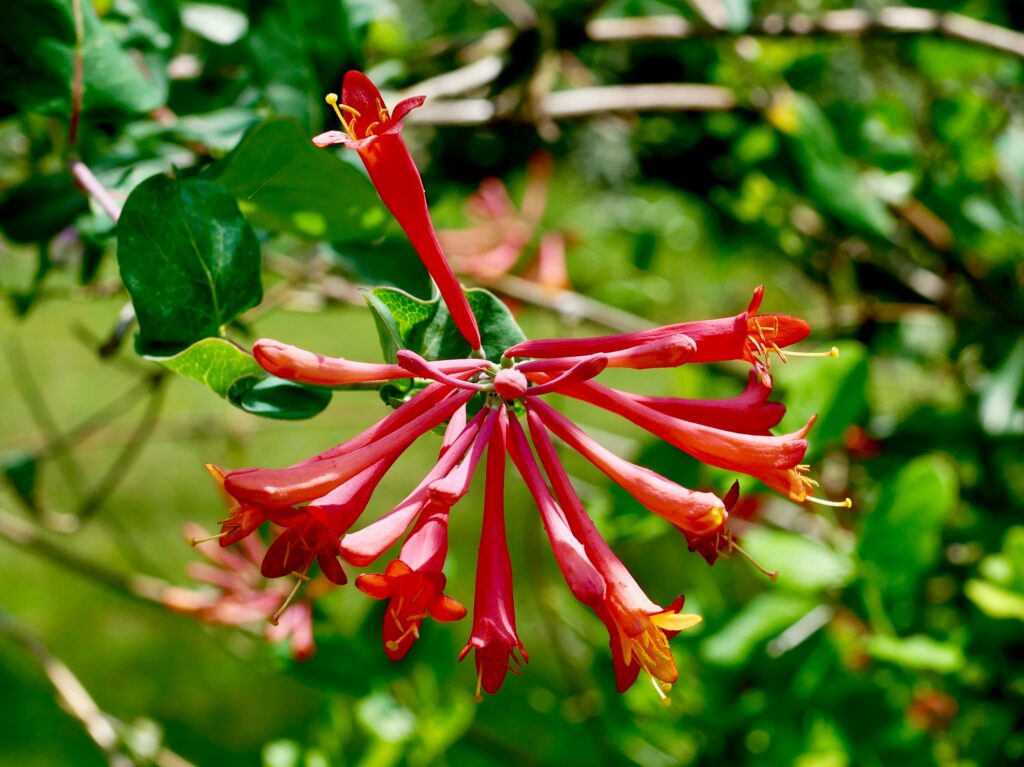
Another native shrub now in bloom is the common sweetshrub (Calycanthus floridus, ‘Aphrodite’). This shrub is deer resistant and has large, showy magnolia-like blooms. Typically, this shrub is only 4-6 feet tall, but the one by our guest kiosk has grown to about 10 feet tall and wide. Close-up, the flowers have rounded deep-magenta petals with internal petals having a touch of cream. Sweetshrub can also be found along the Long Walk at the WVBG.
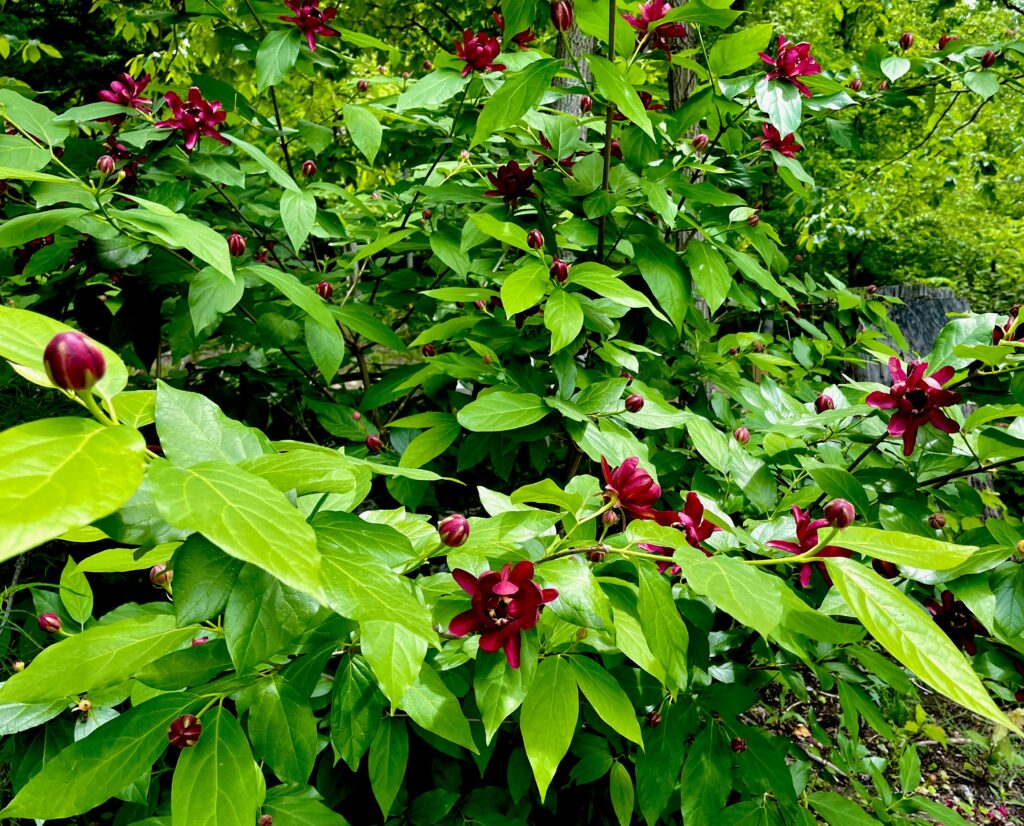
Our last bloomer this week is a yarrow (Achillea millefolium, ‘Pomegranate’), an herbaceous perennial in the aster family. Yarrow is a great choice for dry, hot spots in the garden and tends to do well in a variety of soil types. They are also great for pollinators and butterflies and come in a variety of colors. At the WVBG, we have this lovely carmine red variety now in bloom below the Education and Event Center.
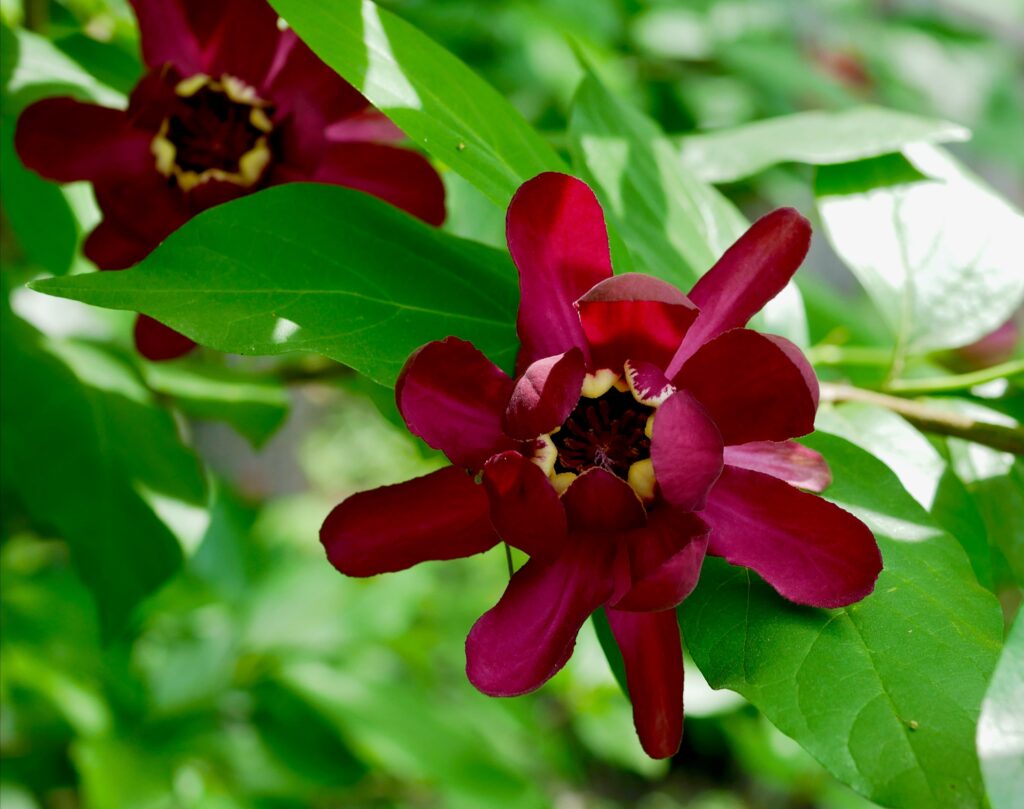
David P. Davis, Ph.D., gardener at the WVBG. For visiting information, maps, and more, visit WVBG.org.
TWEET @DominionPostWV

